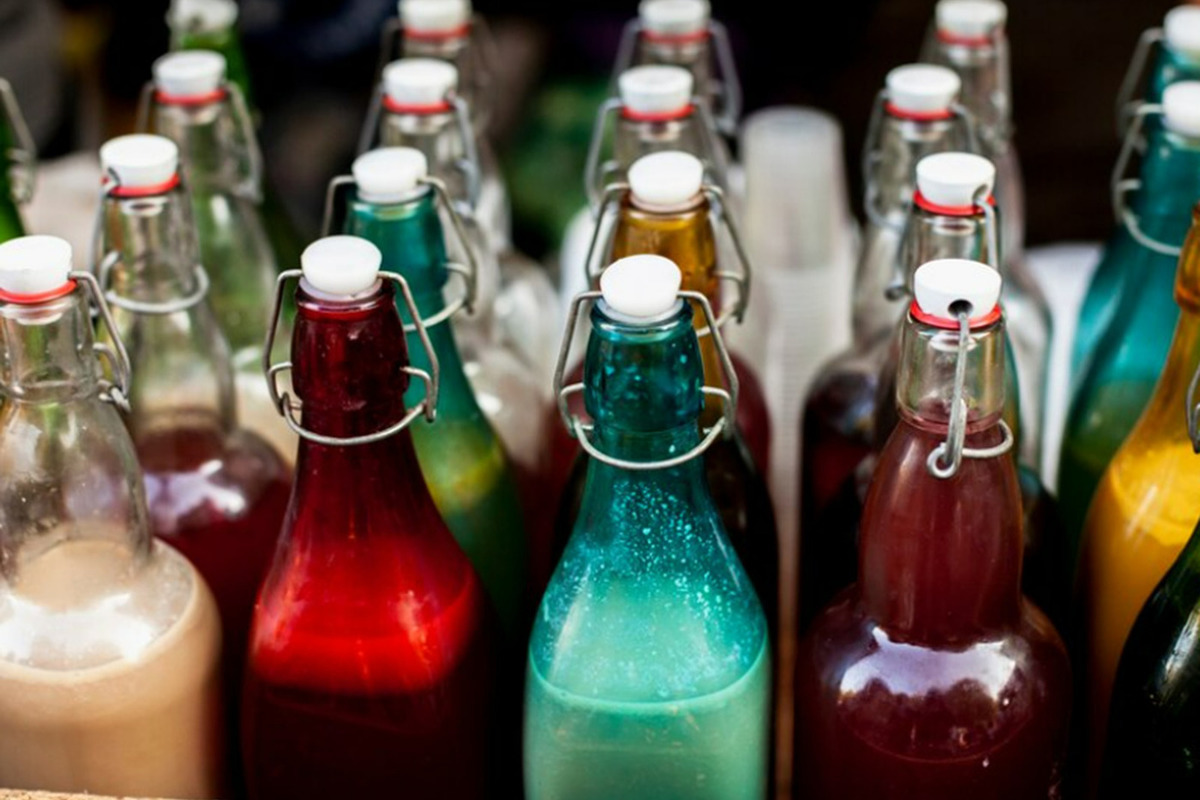Russians are massively abandoning certified alcohol: switching to samopal
[ad_1]

Vodka and cognac are losing their consumer audience. Russians are reducing purchases of strong alcohol, according to data from Rosalkogoltabakkontrol. However, experts emphasize that the drop in sales does not equal a reduction in consumption of 40% alcohol drinks. Consumers do not have enough money to purchase alcohol in legal retail. As a result, many Russians began to produce strong alcohol at home: cheap and cheerful!
Sales of vodka in Russia for 9 months of 2023 decreased by 5.7% compared to 2022, cognac – by 7.2%. In general, sales of alcoholic beverages in Russia in January – September decreased by 4.2%. Meanwhile, according to Rosalkogoltabakcontrol, retail sales of low-alcohol drinks from January to September increased by 17.2%, and fruit alcoholic products by 5.7%.
Why did consumers begin to abandon vodka, a seemingly traditional strong drink for Russians, and cognac? Market experts explain the decline in sales of strong alcoholic beverages, in particular, by the decline in income of the middle class. Meanwhile, let us recall that in 2022, the consumption of strong alcohol in Russia increased by 7.5%, as follows from data from the auditing company FinExpertiza. Sales grew, among other things, due to the fact that drinking alcohol is traditionally perceived by many people as the simplest and most accessible way to reduce anxiety and stress, noted Agvan Mikaelyan, a member of the board of directors of FinExpertiza.
But can we assume that the decrease in consumption of strong alcohol is due to the fact that Russians have stopped being nervous and have come to terms with the difficult economic and geopolitical reality? Marketing expert for strong alcohol, member of the Guild of Marketers Ruslan Bragin believes that the reason for the change in trend lies elsewhere.
“If we think globally, then the target (that is, alcohol-consuming) audience is being rejuvenated. The category of people who prefer vodka is shrinking. The drink is no longer fashionable among the new generation and its place is taken by other types of alcohol. There is a “migration” of consumers to other segments of the alcohol market. If earlier he chose from two or three brands of vodka, now he looks, in particular, at other drinks, which show growth in sales,” he notes.
According to the expert, in general, sales of alcoholic beverages will continue to grow, since in times of crisis people consume alcohol, which acts as an antidepressant.
“My forecast: the growth in alcohol consumption in Russia will continue, but only slightly. Sales of whiskey, brandy and cognac will increase – both from the Russian Federation and from friendly countries. Vodka will continue to slowly lose demand,” concludes Bragin.
At the same time, managing partner of B&C Agency Ivan Samoilenko notes that there are several factors in the issue of alcohol consumption in Russia.
“Firstly, rising prices led to a reduction in sales of strong drinks. Secondly, there is a growing fashion for a healthy lifestyle. This was especially evident during the pandemic – consumers are more concerned about health, and accordingly, the total volume of purchases of strong alcohol may be reduced. Third, the culture of consumption is changing, citizens have become more knowledgeable about wines and champagne, and therefore are buying them more often instead of the usual vodka,” continues the expert.
However, not all is well on the market. This trend also has a downside: the rising cost of vodka, cognac and other strong drinks has led to an increase in the consumption of home-made alcohol.
“Russians are starting to make tinctures, wines, and moonshine for their needs. In the country in recent years, sales of moonshine stills have increased significantly. Some citizens rightly decided that with rising inflation, it would be more profitable to produce alcohol on their own rather than buy it,” concludes Samoilenko.
[ad_2]
Source link






